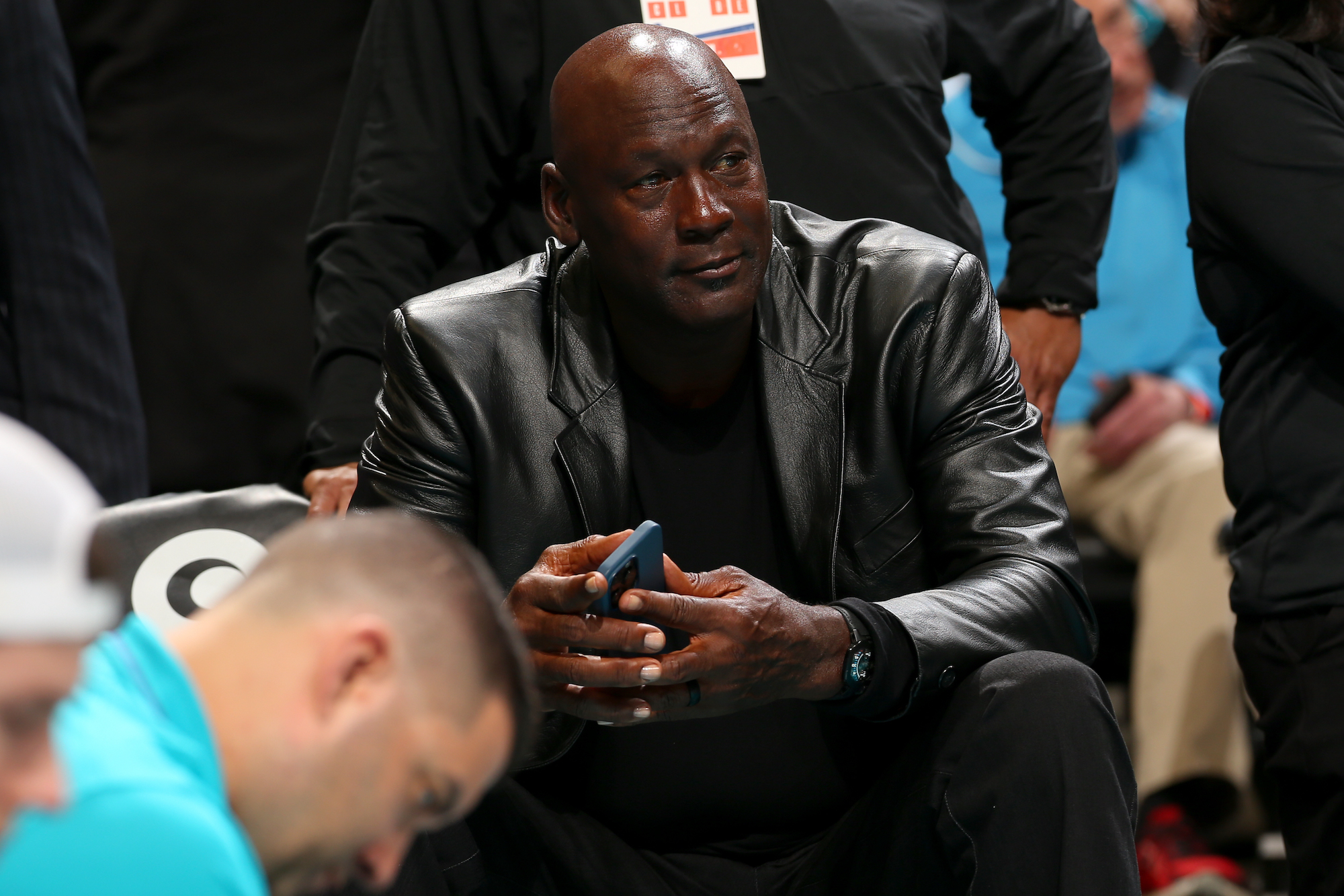Reports that Michael Jordan is looking to sell most of or all of his majority stake in the Charlotte Hornets tell us many things, but mostly we end up asking the question, "Was this a success?"
As a businessman, of course it was. He bought control of the team (then the Bobcats) in 2006 from Robert Johnson, the first black majority owner of a North American professional sports franchise (and when Jordan leaves there will be none), for $275 million. According to Sportico it has appreciated in value over those 17 years to $1.77 billion, which means that at minimum Jordan will make 10 figures on the deal, give or take whatever piece he chooses to retain. Anyone want to argue that this isn't a veritable triumph?
Of course, he could have waited out the next NBA media rights deal in two years (the league is aiming for $75 billion, which divided 30 ways is roughly $2 billion and change per team), and at 60 he is hardly ready for the knackers yard. Whatever Jordan’s motivation, he gets out well for having the fifth-smallest team in the league, market- and money-wise.
But if we decide to conflate business with basketball acumen, which is never a sensible way to do this sort of thing, Jordan has also been the fifth least successful operator in terms of winning percentage, and the Hornets have made only three playoff appearances since he started running basketball ops, winning none of the three series in which they played and losing their only Game 7 ever to Miami, 106-73. Jordan clearly knows his business, but his M.O. as a hypercompetitive player/wagerer suggests that he has had significantly less fun running the basketball team than profiting from it.
So which is it? Did he triumph as the mythology says he always does, or did he fail? Are we holding him to a different standard than mere tycoons of the self-created and/or spawned type because he used to play?
It all depends on how you choose to view him—businessman or basketball-knower—and then goes back to whether you choose idolatry to analysis. We tend to judge franchise ownership by wins and losses when in fact a sports franchise is almost always part of a far larger portfolio; almost no owners claim their team as their only holding anymore. They all made their jack elsewhere and then bought the team as a subsidiary/toy.
By the business standard, then, almost no owner has ever sold his or her team for less than he or she paid for it. Most in fact make out like Jordan. Even the reprobates (Donny Sterling, Danny Snyder, Harold Ballard, the list goes on forever) cash out handsomely, and since the real job of a sports franchise is to enrich and when possible ennoble its owner, everybody who has already won by getting in wins again when getting out. To lose on a deal, an owner almost has to end up in jail, and in a more perfect world almost all of them would.
But we also tend to credit owners for winning when in fact their only real contributions are (a) having money, (b) hiring people smart enough to spend it wisely, and (c) getting out of the way. Every time an owner insists on having his own way as regards the team's operation, an angel bursts into flames and takes a litter of puppies with it. No matter how many times you want to call Bob Kraft or Mark Walter or Joe Lacob the guiding genius behind the Patriots, Dodgers, and Warriors, having Tom Brady, Clayton Kershaw, and Stephen Curry are the more correct answers.
But Jordan began his front-office career as the basketball ops guy, remember, and then bought the team when Johnson decided to sell, so the Bobcats/Hornets are more his baby than any other owner can claim, and the team … well … they got their nickname back. So there's that, and only that.
So if you think owners should get credit for their teams' results, then Jordan didn't do that well at all. But if you understand that at their heart, owners prioritize profit over performance, he did what anyone would do in that situation—he cashed out fat. Maybe he had some fun along the way, but whatever portion of that there was, it wasn’t enough to make him stay.






